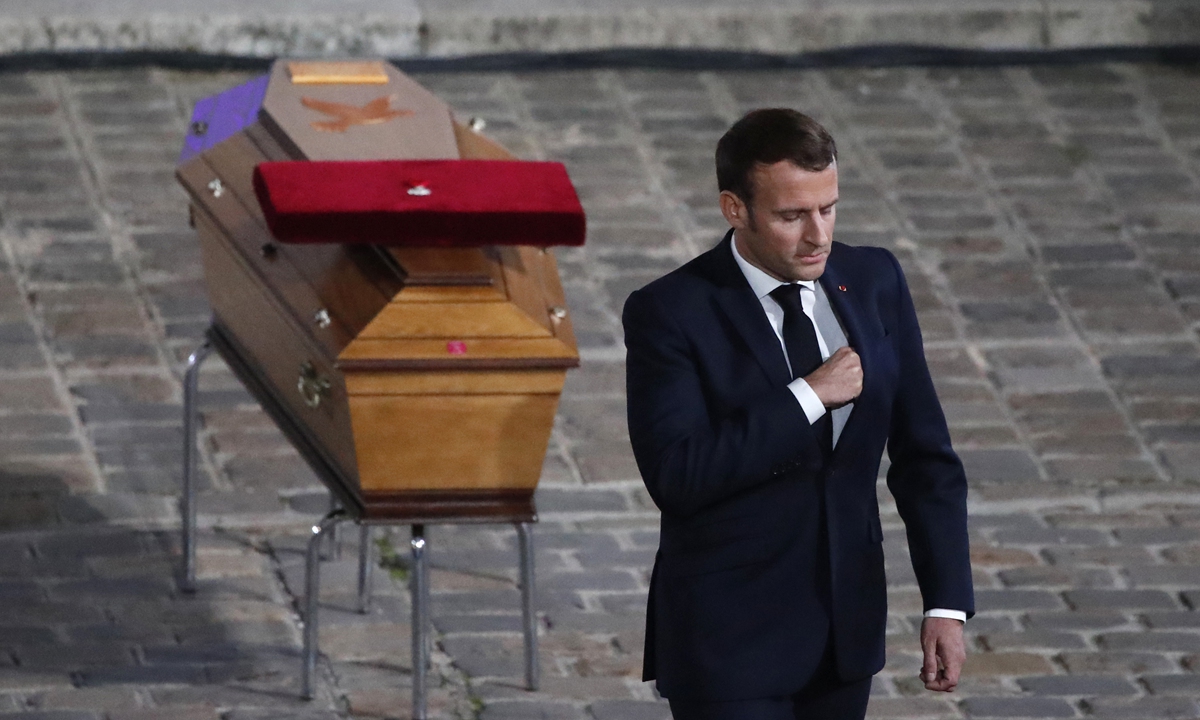Mideast ire from Macron’s words starts French boycott
Source: AFP Published: 2020/10/25 17:13:40

French President Emmanuel Macron pays his respects by the coffin of Samuel Paty in Paris on Wednesday during a national homage to the French teacher, who was beheaded in broad daylight outside his school. Seven people, including two schoolchildren, will appear before an anti-terror judge for a decision on criminal charges over the killing of the 47-year-old teacher. Photo: AFP
Calls to boycott French goods are growing in the Arab world and beyond, after French President Emmanuel Macron criticized Islamists and vowed not to "give up cartoons" depicting the Prophet Muhammed.Macron's comments, on Wednesday, came in response to the beheading of a teacher, Samuel Paty, outside his school in a suburb outside Paris earlier in October, after he had shown cartoons of the Prophet Muhammed during a class he was leading on free speech.
The teacher became the target of an online hate campaign over his choice of lesson material - the same images that unleashed a bloody assault by Islamist gunmen on the offices of satirical magazine Charlie Hebdo, the original publisher, in January 2015. Caricatures of Muhammed are forbidden by Islam.
On Saturday, Jordan's foreign ministry said it condemned the "continued publication of caricatures of the Prophet Muhammed under the pretext of freedom of expression" and any "discriminatory and misleading attempts that seek to link Islam with terrorism."
Dozens of Kuwaiti stores are boycotting French products, with images on social media showing workers removing French Kiri and Babybel processed cheese from shelves.
In Doha, an AFP correspondent saw workers stripping shelves of French-made St. Dalfour jams and Saf-Instant yeast in a branch of the Al Meera supermarket chain on Saturday.
Recep Tayyip Erdogan, President of Turkey, on Saturday slammed Macron over his policies toward Muslims, saying that the French president needed "mental checks."
"What can one say about a head of state who treats millions of members from different faith groups this way: first of all, have mental checks," Erdogan said in a televised address.
AFP